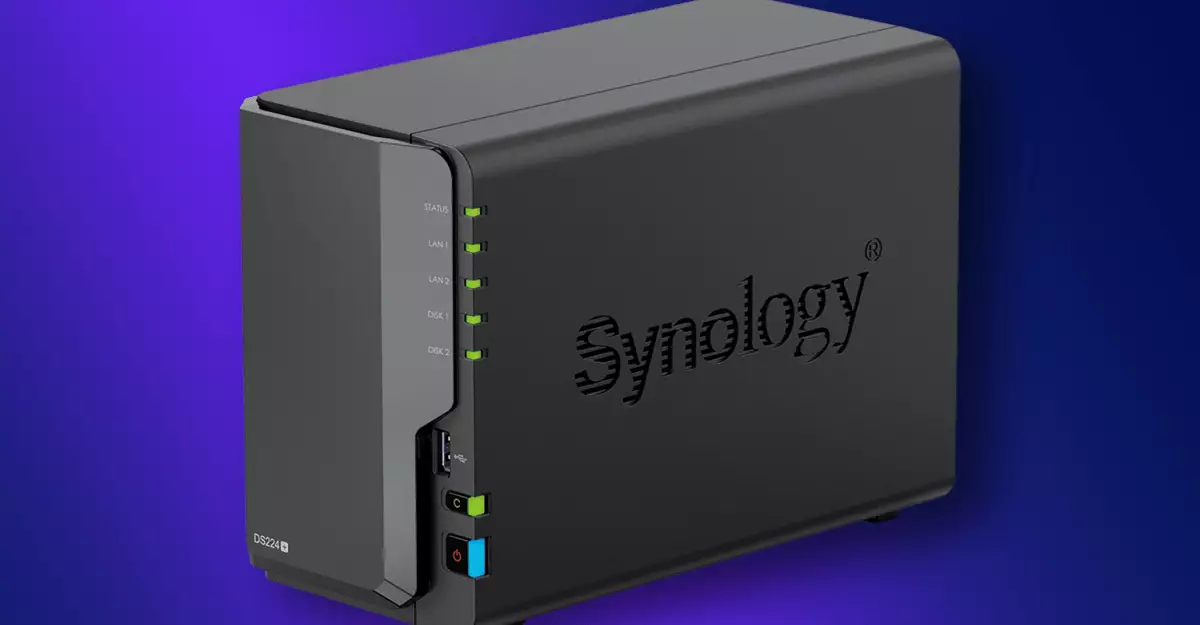The landscape of data storage is always evolving, and many tech enthusiasts are paying close attention to the latest announcements from Synology. As a leading player in network-attached storage (NAS), Synology has unveiled its plans to implement new restrictions on third-party hard drives in its upcoming models, igniting a wave of discussions among users and industry watchers alike. While these changes may initially seem like a setback, a deeper analysis reveals that this could also be an interesting pivot towards greater reliability and stability in NAS systems.
Synology has stated that this new policy will come into play for its Plus Series models starting in 2025. This strategy will allow only Synology-branded and certified drives to utilize the full range of features and functionalities. Existing users need not fret, as those with current hardware won’t face immediate repercussions. Their devices will remain as versatile and functional as ever. However, it raises important questions about the balance between functionality, choice, and the overall user experience for new customers.
Understanding the Rationale Behind the Restrictions
At the core of Synology’s decision is a commitment to system performance and data integrity. The company has cited extensive internal testing as a driving force behind this move, arguing that drives which have undergone a rigorous validation process demonstrate a markedly lower risk of malfunction and compatibility issues when integrated with their systems. This perspective raises an interesting point often overlooked in the conversation surrounding tech restrictions: the importance of reliability in a world where data breaches and loss can be catastrophic.
Additionally, by limiting the options to Synology-approved products, the company aims to minimize unexpected incidents that could disrupt user experience. Compatibility problems can lead to frustrations that discourage users from maximizing the capabilities of their hardware. Synology’s aim to streamline supported configurations could enhance customer satisfaction, ultimately reinforcing its reputation in the industry. However, how receptive customers will be to these increased restrictions is yet to be seen.
A Double-Edged Sword: The Impact of Reduced Choices
The restrictions on third-party hard drives undoubtedly limit consumer choice, which is a significant downside. The very essence of NAS systems has been their versatility, often appealing to DIY enthusiasts and those who wish to tailor their storage solutions precisely to their needs. By narrowing the selection to only certified drives, users may find themselves paying a premium or sacrificing functionality if they cannot afford “official” drives.
On the other hand, some users may prefer the assurance of a unified experience that guarantees compatibility. For individuals and businesses relying heavily on data storage for critical operations, the peace of mind that comes with using vetted drives could be worth the downside of having fewer choices. There exists a poignant tension between the desire for affordability and the demand for reliability—a conflict that is not unique to NAS systems but rather endemic across various technology sectors.
What Lies Ahead for Synology Users
Looking forward, the storage landscape promises to remain complex. While Synology fans enjoy the comfort of their existing setups, newcomers face a pivotal choice: to adapt to a more controlled environment or to seek storage alternatives. The evolving market conditions and consumer preferences will play a crucial role in shaping Synology’s future, pushing them to find ways to balance innovation with user-demand.
The company’s announcement also brings to light the undercurrent of competition among NAS providers. As other brands witness Synology’s moves, their response strategies will shape the wider market narrative around third-party hardware compatibility. This dynamic could either drive innovation in drive development or lead to a tug-of-war over customer loyalty as companies vie to distinguish themselves in terms of flexibility.
Whether these restrictions will ultimately bolster Synology’s standing as a forefront NAS provider or serve as a barrier that pushes users elsewhere remains uncertain. However, what is clear is that Synology is taking bold steps, leaning into a philosophy of reliability at a potential cost to user autonomy. As with any technological evolution, the outcome will be dictated by user response and market adaptation.

